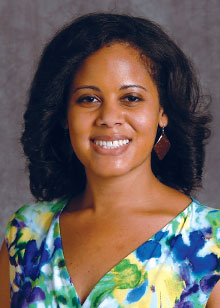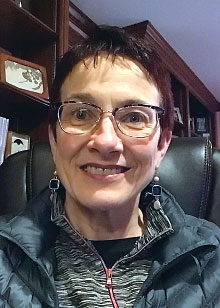State Racial Justice Learning Collaborative Seeks Diverse Public Psychiatry Workforce
Abstract
The monthly Racial Justice Learning Collaborative in Pennsylvania has served as a forum for sharing best practices and cutting-edge ideas that are slowly producing results in recruitment. Last year, the effort led to the Pennsylvania district branch’s winning the APA Assembly’s 2022 DB Best Practice Award.
Psychiatric educators in Pennsylvania are working to make diversity, equity, and inclusion a reality in psychiatry training programs with the goal of increasing the number of Black psychiatrists and members of other underrepresented groups serving public-sector patients in the commonwealth.
Since 2020, the Pennsylvania Psychiatric Leadership Council (PPLC), in concert with the Pennsylvania Psychiatric Society, has sponsored the Racial Justice Learning Collaborative comprised of the leadership of the 13 residency programs in the state. Monthly meetings of the training directors began as a response to the pandemic in early 2020, but after the killing of George Floyd in May that year, the discussion began to focus on racial justice.
The PPLC was established with funding from the state to establish Centers of Excellence in medical schools throughout Pennsylvania to train psychiatrists to work with patients in the public system.
What has evolved since then is more than talk: The group has produced a learning curriculum around racial justice and an extensive reading resource list on the subject for faculty and trainees; they have also established a roundtable for Black residents who now have their own regular discussions. More important, the monthly learning collaborative discussions have served as a forum for sharing best practices and cutting-edge ideas that are, very slowly, producing results in recruitment. The goal of these efforts, as stated on the PPLC website, is to make “the face of psychiatry in the Commonwealth look like the face of the people of Pennsylvania.”
Last year, the Pennsylvania district branch won the 2022 DB Best Practice Award for its Racial Justice Learning Collaborative.

Rachel Talley, M.D., co-chair of the PPLC Racial Justice Initiative Workgroup, urged educators in other states to not be daunted by the challenge of working toward racial equity in training programs. “Don’t hesitate because it’s not something you’ve done before.”
“After George Floyd we began having these discussions about racial justice, and we were really wrestling with how do we move beyond talking to action? What is our purview?,’” said Rachel Talley, M.D., co-chair of the PPLC Racial Justice Initiative Workgroup. “What we landed on is workforce development, and we began to focus on building up a diverse public psychiatry workforce that would be committed to serving patients in Pennsylvania.” She is also director of the community psychiatry fellowship program at the University of Pennsylvania, one of the PPLC Centers of Excellence.

“My hope is that we have all of our programs working to ensure that trainees of all backgrounds are well versed in issues about structural racism and inequity,” said Mary Anne Albaugh, M.D.
Fellow co-chair Mary Anne Albaugh, M.D., director of the rural public psychiatry fellowship at the University of Pittsburgh, also a PPLC Center of Excellence, emphasized the very practical—rather than theoretical—nature of learning collaborative discussions.
“How can we change institutionally to promote diversity? How can we learn to deal with microaggressions? My hope is that we have all of our programs working to ensure that trainees of all backgrounds are well versed in issues about structural racism and inequity,” Albaugh said. “Any facet of training is likely to have some elements of inequity that pervade the larger society. We want our training directors to be actively thinking about that.”
Christine Marchionni, M.D., director of psychiatry training at St. Luke’s University Health Network, in Bethlehem, said she appreciates the hands-on, practical nature of the learning collaborative. “Apart from the collaborative, we get a lot of diversity, equity, and inclusion [DEI] talks and DEI information but very few tools or strategies for how to disseminate and promote DEI in the program,” she told Psychiatric News. “The PPLC gives me those tools. The collaborative has really helped operationalize a lot of what is otherwise theory and talk.”
As an example, Marchionni said she is planning to adopt an exercise used at the University of Pittsburgh to give trainees the simulated experience of confronting racial discrimination when they see it: Actors, portraying a physician (or nurse) and a patient, simulate an interaction during which a microaggression or something discriminatory occurs. Marchionni said the exercise confronts the trainee with such questions as “Would you be able to confront a peer? A senior physician? A nurse?”
She added, “With the help of the collaborative, I have been able to take a more mindful, holistic approach to interviewing applicants.” Not coincidentally, the program recruited for the first time two Black trainees last year; in a program with a total of 24 residents for all four years, in a region of the state in which 10% of the population served by the hospital are African American, that is a significant step toward making the psychiatric workforce look more like the population they are treating.
Cabrina Campbell, M.D., program director and vice chair of education at the Perelman School of Medicine at the University of Pennsylvania, echoed the importance of the practical tools and strategies that the collaborative offers. “Just being a Black program director doesn’t mean you will attract diverse candidates, unless you are actually doing something.”
In the period since the collaborative began, UPenn has recruited 13 Black trainees (the program has 12 residents per class), two of whom are women training in the research track. “This really gives me the confidence when talking to applicants of diverse backgrounds to say that this is important to us, and we will welcome and support you here,” she said. “We are ‘walking the walk.’”
To other district branch leaders and educators elsewhere seeking to replicate the success of the PPLC Racial Justice Learning Collaborative, Talley says don’t be daunted by the immensity of the subject.
“There can be a hesitancy to dive into this, to say, ‘I don’t have the experience or the background to take this on,’” she said. “But there’s something to just diving in and trying. None of us was an expert in racial equity. Don’t hesitate because it’s not something you’ve done before.” ■



